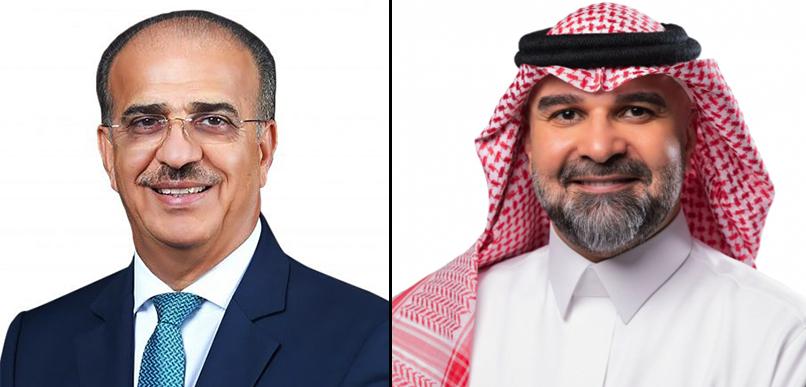
New Saudia Technic CEO Abdulkhaliq Saeed (pictured left) and outgoing CEO Fahd. H. Cynndy, (pictured right), who is transitioning to the role of managing director.
Saudia Technic’s recent confirmation of a new CEO continues the company's plan to become a major MRO player as part of the kingdom’s broader policy to grow its aviation infrastructure.
Last week, the state-backed MRO announced 40-year industry veteran Abdulkhaliq Saeed as its new CEO. He replaces Fahd H. Cynndy, who is moving to the managing director role at Saudia Technic to oversee its owned companies and subsidiaries and spearhead the creation of new businesses.
The appointment of the former Etihad Engineering leader is an ambitious move for the MRO. Saeed led Etihad Airways Engineering’s operation in Abu Dhabi for nearly seven years and helped oversee the company’s march toward being a one-stop shop provider. During his tenure, the company grew its third-party maintenance to around 70% of overall business, with the remainder being Etihad Airways-related fleet work.
Under Saeed's leadership, Etihad Engineering also expanded its capacity in Abu Dhabi, while adding new capabilities for several aircraft types including the Airbus A350 in 2019. The company also grew in segments such as passenger-to-freighter conversion work and added several specialist component offerings.
Saudia Technic, which rebranded from Saudia Aerospace Engineering Industries last year, has capabilities for line, base, components and engine maintenance, but new capability additions are likely to be a common theme over the next five years.
Saudi Arabia’s Public Investment Fund confirmed its investment in the MRO provider in late 2023 and plans to build a designated ‘MRO Village’ at King Abdulaziz International Airport in Jeddah. Construction on the 10.7 million ft.2 site is underway.
A bigger move into the higher-margin engine MRO market is expected, with the maintenance site including a center for engine maintenance and an engine test cell that will eventually service both narrowbody and widebody engine types. While the expansion will give Saudia Technic greater hangar capacity, the company mooted any plans to grow the number of on-site component shops at the time of the MRO Village announcement. It also identified a market to capture more work from its growing domestic fleet as a third-party provider.
Aviation Week Network’s Fleet & MRO Forecast data projects a sizeable expansion of Saudi Arabia’s fleet over the next 10 years, increasing to 448 aircraft by 2033, up from 291 this year.
Flag carrier Saudia has orders and commitments for up to 49 Boeing 787s, comprised of 39 firm orders and 10 options. Fledgling state-backed carrier Riyadh Air, which is expected to commence operations next year, is earmarked to take up to 72 Boeing-manufactured aircraft, comprised of a firm order for 39 787-9s with options for 33 additional 787s. A future announcement for a large 737 MAX order is also anticipated.
Low-cost carrier Flynas is also modernizing its fleet with a series of Airbus A320neo deliveries, while Saudia-owned Flyadeal has been operating for more than six years with a sizeable new aircraft fleet and future commitments for more A320neos.






